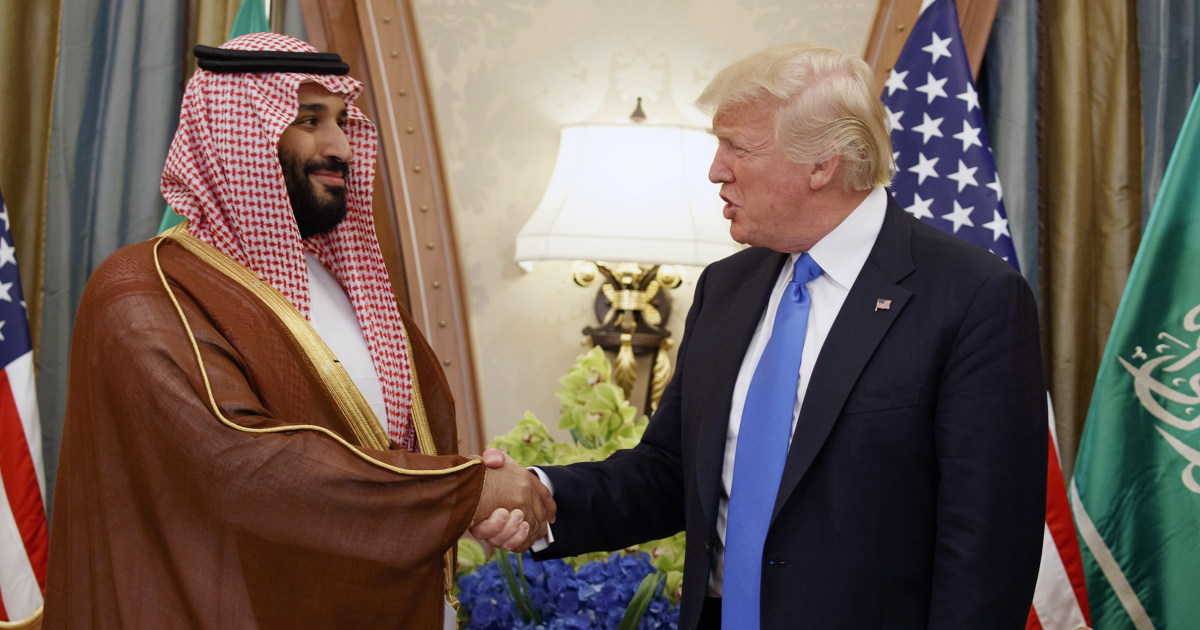 |
|
The recent phone call between former President Donald Trump and Saudi Crown Prince Mohammed bin Salman marks a significant development in US-Saudi relations, particularly given its timing as Trump's first foreign leader call of his purported 'second term'. The conversation, while seemingly amicable and focused on economic cooperation and regional stability, is deeply interwoven with the complex history of the relationship between the two nations and the controversies that have defined it during Trump's first presidency. The reported $600 billion investment pledge from Saudi Arabia, and Trump's subsequent public statement aiming for a $1 trillion figure, highlights the economic dimension of this renewed engagement. This focus on economic ties, while seemingly beneficial for the US, also raises questions about the potential overshadowing of human rights concerns and other geopolitical considerations.
Trump's previous interactions with the Saudi Crown Prince have been marked by a pragmatic approach that prioritized economic and strategic partnerships over human rights concerns. His administration consistently defended the Saudi government, even amidst international condemnation following the murder of journalist Jamal Khashoggi. The CIA's assessment implicating bin Salman in the assassination was met with a muted response from Trump, prioritizing the strategic alliance with Saudi Arabia. This pattern of prioritizing strategic interests over human rights concerns continues to raise ethical questions and underlines the complex dynamics at play in US-Saudi relations. The fact that Trump's first foreign call focuses on this relationship highlights its ongoing significance in his foreign policy agenda, regardless of the numerous human rights violations committed by the Saudi government.
The economic dimension of this renewed engagement is substantial. The projected $600 billion, and Trump’s aspirational $1 trillion, investment from Saudi Arabia represents a significant potential economic boon for the United States. This investment could create jobs, stimulate economic growth, and strengthen US-Saudi economic ties. However, such a large-scale investment necessitates careful consideration of potential risks and downsides. Concerns remain about the Saudi government's human rights record and the potential for this economic relationship to legitimize questionable practices. Furthermore, the focus on economic gains might overshadow other crucial elements of a balanced foreign policy, leading to a potentially imbalanced relationship where economic interests eclipse other important geopolitical factors and human rights issues.
Beyond the immediate economic implications, Trump's renewed engagement with Saudi Arabia has significant geopolitical ramifications for the Middle East. The call signals a potential shift in US foreign policy in the region, potentially impacting relations with other regional players. Trump's stated aim to work with Saudi Arabia and OPEC to lower oil prices is another critical aspect of this renewed relationship. However, the success of this initiative is contingent on a multitude of factors, including global oil market dynamics and the willingness of OPEC members to cooperate. The political and economic implications of oil price fluctuations are vast, affecting not only the United States but also the global economy. Therefore, the success of Trump's efforts in this area will be a crucial factor in evaluating the effectiveness of this renewed alliance.
In conclusion, Trump's call with the Saudi Crown Prince signals a significant shift in US-Saudi relations. While the focus on economic cooperation and regional stability is noteworthy, the historical context of this relationship, characterized by controversies and the consistent prioritization of economic and strategic interests over human rights concerns, necessitates careful scrutiny. The potential economic gains are substantial but must be weighed against the risks of legitimizing questionable practices and neglecting crucial geopolitical and human rights factors. The long-term impact of this renewed engagement remains to be seen, but it is certain to have significant ramifications for both US domestic and foreign policy.
Source: Trump speaks to Saudi crown prince in first foreign leader call of second term
